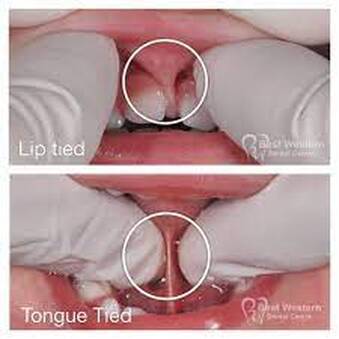 You may be familiar with the Mad Hatter from Alice in Wonderland. He was a tad bit eccentric, to put it nicely. You might even call him crazy, 'off his rocker', a few fries short of a Happy Meal or just downright mad (meaning marked by mental disorder). But do you know where the term 'mad as a hatter' originates? The expression is linked to the hat-making industry and mercury poisoning. In the 18th and 19th centuries, industrial workers used a toxic substance, mercury nitrate, as part of the process of turning the fur of small animals, such as rabbits, into felt for hats. Workplace safety standards often were lax and prolonged exposure to mercury caused employees to develop a variety of physical and mental ailments, including tremors (dubbed “hatter’s shakes”), speech problems, emotional instability and hallucinations. Unfortunately, toxic mercury exposure has continued into this century as silver (mercury) fillings are still commonplace in the dental industry. These types of fillings can off-gas mercury vapors that you breath in. Chewing can also release small amounts of mercury. Do your brain a favor and plan to have any silver (mercury-based) fillings replaced. When it comes to brain health, prevention is always better than cure. Memory loss and dementia, like Alzheimer’s which accounts for two-thirds of dementia, are not conditions you suddenly get, like an infection. They are not the natural consequence of aging nor are they genetic. Only 1% of Alzheimer’s is due to genetic makeup. There is a lot you can do to ensure proper brain function for life. In addition to limiting toxic exposure (like mercury) to improve brain health, consider the good things you should be putting into the body for better brain function. We want to make you aware of a great organization whose goal is to raise awareness of the importance of optimum nutrition in mental health. Food For The Brain is a not-for-profit charity working to empower individuals to change their diet and lifestyle and take greater control of their own mental health. We highly recommend testing to get a baseline of your cognitive function here: https://foodforthebrain.org/the-cognitive-function-test/ There is so much great information on their website, including helpful foods for various brain conditions (anxiety, ADHD, depression, memory loss, etc.) Be sure to sign up for their newsletter, too.
0 Comments
 You have probably heard that phrase applied to quite a number of things such as 'growing older; 'telling the truth', 'parenting teenagers' or even just 'life'. We believe it also applies to your health. Taking responsibility and making the choices that support your health is not for the faint of heart! It often means acting differently than those around you, choosing to exercise instead of binge Netflix, making a meal at home instead of eating out, going to bed on time and being disciplined enough to say no to unhealthy habits. While taking good care of yourself does require some bravery and discipline, it is absolutely essential to ensure you aren't physically 'faint of heart'. It goes without saying that your heart is one of your most critical organs. Even with how essential it is to your survival, you shouldn't be aware of your heart. It should do its job 24/7 without complaining to you about anything - no fluttering, no pain, and no racing. You shouldn't even hear it beating when you lay down to sleep at night. Your heart needs to be disciplined about knowing when to take a break. It should actually be at rest 2/3 of the time. Even with all that laying around, your heart still finds time to beat about 100,000 times per day! The heart really is an amazing organ and we see with our heart scans how each person has a 'heart print' that is unique to them. Even with a unique rate, rhythm and tone, we often see opportunity for improvement in the functioning of the heart for most people. Regardless of whether or not you have heart concerns or are taking medications for heart issues, a scan will reveal areas for improvement. Using an advanced heart scanning device called the Heart Sound Recorder, a graph is made of each valve of your heart. The rate, rhythm and tone is then evaluated to determine overall functioning of your heart. Recommendations are made to improve your heart health and graphs can be re-run over time to ensure progress toward your goals. There is a lot that you can do to slow the progression of heart issues or reverse trends all together. It is vital that your heart has the proper nutritional balance in order to keep a healthy rate, rhythm and tone. To help support your heart nutritionally, we have a number of heart supplements available. Come in for a heart scan and learn which ones may be best for you. Your heart is doing it's best to take care of you and deserves a brave champion taking care of it, in return!  Uninvited guests can really make a mess of the place! Whether its the squirrels hanging off your bird feeder, the trash pandas tearing through your garbage cans, or your in-laws' dog that you didn't expect to be joining you for the holidays (maybe even your in-laws). Regardless of the type of uninvited guests you are entertaining, there may be a few lurking about that you aren't aware of.......namely, parasites! This is where almost everyone says 'ewww!'. A parasite is an organism that lives on or in a host and gets its food from or at the expense of its host. It is fairly common for people and animals to have parasites as they are often in our food or water, in our garden soil, and even in sloppy wet kisses from our favorite pet. Our bodies are pretty good at living in balance with all kinds of creatures (bacteria, viruses, yeasts, worms, etc.). The real problem begins when those critters increase in numbers to the point that the body has difficulty eliminating them and functioning normally and healthfully. How do you know if you are hosting some internal uninvited guests? Here are a few signs and symptoms: • Abdominal pain • Diarrhea • Visually seeing them in the stool • Nausea or vomiting • Gas or bloating • Itching around the rectum • Fatigue • Increased appetite • Unexplained weight loss • Sugar cravings • Wild and vivid dreaming Thankfully, there are a number of things you can do to help minimize the chances of parasites getting the upper hand. It begins with minimizing your exposure to them in the first place: • Wear gloves when working in the dirt • Clean off pets' paws when they come inside • Soak produce in water mixed with vinegar (especially organic produce that has not been irradiated) • Cook food to proper temperature • Limit sushi intake • Filter drinking water Next, help your body fight them off naturally: • Limit acid blockers and PPIs - acid is your first line of defense against ingested pathogens • Keep your gut healthy - a healthy environment limits the overgrowth of uninvited guests Provide your body with the support it needs: • Eat garlic • Use a product like Biocidin to reduce/remove biofilms where parasites like to hide • Have everyone in the household do a periodic parasite protocol such as our Weed and Feed program. • Increase stomach acid with a supplement such as Zypan (if you suspect H. Pylori, you need to deal with that infection before increasing stomach acid) Zypan is a must if you are travelling internationally or eating questionable foods like sushi. We are always happy to help assess your situation. Testing for parasites can be done with a lab test, such as the G.I. Map. We also use muscle testing to help determine if the body needs support in dealing with any uninvited guests. Set up your New Client appointment today!  Of course we don't mean the kind of 'mouthy' that instigates a threat from your mother to 'wash your mouth out with soap'. Instead, we are focusing on all kinds of things with your mouth, that maybe you didn't know were a 'thing'. We hope to provide you with many resources and lots of food for thought - all related to your mouth. It is now pretty well accepted that heart disease often goes hand-in-hand with oral and dental problems. Some of the most current research indicates that what is going wrong in your mouth doesn't just contribute to heart disease, but can actually CAUSE heart disease. It is only a matter of time before other illnesses can be directly linked to the health of your mouth. So, we think that addressing what's going on in your mouth is pretty important! There is just so much to say about the health of your mouth, but here we focus on just 10 things for you to be aware of. #1 - When to Brush You may be inclined to brush right after meals. However, this may be damaging to your teeth. When your mouth is more acidic (after eating, drinking a soda, etc.) the enamel on your teeth is more fragile and likely to be brushed away. Either wait 15 or 20 minutes after eating and drinking or balance the pH of your mouth by rinsing with salt water before brushing. Dissolve 2 tsp. of Himalayan or sea salt into 2 cups of purified water. #2 - Flossing The thought of flossing may not bring a smile to your face, but it is an important part of your dental routine for removing plaque and preventing tartar. However, be careful of the type of floss you use. Many contain chemicals that you don't want in your mouth. Also, Kimberley recently learned that using a 'glide' type of floss may even create more tartar issues because of how it can slide over plaque. Continually sliding over plaque instead of removing it can pack it against the tooth and build up some really tough tartar. We suggest using a Waterpik as a great alternative to flossing. Adding something like Bio-Botanicals Dentalcidin LS or Country Doctor Tooth & Gum to the water can supercharge your results. #3 - Avoid Fluoride This is pretty tough to do when it is added to many commercial toothpastes and even municipal water supplies. We highly recommend alternate water sources if your tap water contains fluoride. In addition, there are many great toothpastes without fluoride. We really like Risewell Mineral Toothpaste and Dr. Jen Toothpaste. Want to know more about the negative affects of fluoride? Check out www.fluoridealert.org. #4 - Mouth Wash Mouth wash is another product that requires caution. Studies are showing a correlation between mouth wash use and cardiovascular issues. This has to do with the type of mouth wash you are using. You definitely want to avoid products that have added chemicals or toxins. A mouthwash with high alcohol content and 'antibiotic' properties is good at killing off bacteria. However, you need to maintain good bacteria in your mouth for a number of reasons. Significantly, specific species of the good bacteria contribute to nitric oxide (NO) production in your body. Nitric oxide decreases significantly with age so you want to produce as much as you can. NO has many positive effects throughout the body, including cardiovascular health. A good mouth wash alternative are the MicroBiome Labs Enzymatic Mouth Freshener tablets. #5 - Mercury/Silver Amalgams It is hard to believe that many people still receive silver amalgam fillings, but they are widely accepted in dentistry. These contain mercury which is poisonous to the body, especially the brain and nervous system. Every time you chew on one of these fillings, a small amount of mercury is released. If you still have silver fillings, make a plan to have them replaced. Replacement must also be carefully planned. Look for a dentist who specializes in safe removal, using a supplemental binder such as chlorella and extra glutathione support. Check out www.iaomt.org. #6 - Root Canals Root canals can be another ticking time-bomb in your mouth. They frequently harbor infection that can slowly drain your health over time. Some studies are showing a correlation between women with breast cancer and root canals. If you have a very strong immune system, eat well and have no symptoms, you may be able to successfully retain a root canal for many years. If you are having any chronic health issues, you may want to consider having the tooth removed. #7 - Cavitations Just what are cavitations? These are holes in the jaw bone rather than in a tooth. These often happen where teeth have been removed, such as wisdom teeth. The problem with cavitations is they can harbor infections. They are most easily identified using something called a cone beam CT scan. As with root canals, if you are having any chronic issues, you should be evaluated for cavitations. #8 - Tongue and Lip Ties These anatomical mouth issues hopefully are identified very early in life. They can contribute to issues with nursing and eating. If they aren't identified and corrected, they can cause a lifetime of oral issues. Be sure to ask your dental professional if you have either tongue or lip ties. #9 - Upper Airway Issues
Upper airway issues refer to how well you are able to breath with your mouth closed. We should not be "mouth-breathers". “Mouth breathing, in particular, has more negative effects on our health than overeating, both physiologically and orthopedically.” Dr. Bahar Esmaili, DDS https://www.airwayarchitect.com/ If upper airway issues persist, you will likely develop poor oral health, a narrowing palate, sinus issues and sleep apnea. There is a lot that can be done to correct upper airway issues before you get to the point of requiring a CPAP machine at night. One of the simplest things you can do is tape your mouth shut. We discussed this in a newsletter last year that you can check out here. If you want to work on strengthening your upper airway, check out the products from REMplenish. Their myofunctional straws and nozzles combine upper airway exercises with the natural action of drinking. If you are interested in working on this further, there is a local clinic in Northern Colorado called Vivos that works with Dr. Esmaili in correcting upper airway issues. #10 - Tooth Organ Chart Last, but not least, it is very important to understand how your teeth (or spaces where you had teeth) relate to other areas in your body. The Tooth Organ Chart is very helpful when it comes to figuring out associations between dental issues and the rest of the body. If a tooth is infected or inflamed, or contains metals that interfere with electrical flow in the body, it can affect the associated organ or system negatively and lead to poor health or chronic illness. Thermography and cone beam CT scans are two ways to see if there are hidden infections around your teeth and gums. Here is a great short article from The Thermogram Center in Colorado that explains a lot more and provides further resources. If you would like a good at-home reference, one of our study groups recently read "Healthy Mouth, Healthy You!" by Michelle Jorgensen. This is a very easy to read and instructional book that covers many of the above topics. We highly recommend adding it to your library. As with all other systems of the body, great dental and oral health depend most on good nutrition to keep your smile healthy and happy! ***Bonus Info: Cold Laser and Dentistry*** Did you know that dentists have been pioneers of using cold laser in their work? You may have even experienced a dental procedure that uses laser - it is becoming very common. Issues with teeth and gums is one of the main reasons we help our clients acquire their own laser for home use. It is so helpful when dealing with infections or bone loss. If you don't already have your own laser, be sure to contact us to learn more or you can always purchase your own here. If you aren't able to purchase your own laser just yet and are dealing with sore teeth or other difficult dental work, you are welcome to rent a laser to use in our lobby. Sometimes we are able to rent lasers for longer at-home use too.  If you are, or ever have been, a homeowner, you know that you can't ignore your gutters for too long. If you have lots of trees around, you need a plan for cleaning the clutter out yearly, at least. Or you need a pretty good system for keeping the clutter out - gutter guards, gutter helmets, professional help, etc. If you don't, you will likely be faced with damaged, leaking or overflowing gutters before too long. The water isn't going to flow where it is supposed to go if you don't keep things cleaned up. Think of your gut as the gutter of your body. It is the major detox pathway that keeps things running smoothly. If you start to collect clutter (aka toxins, waste materials, etc.) in your gut, things aren't going to move well and you will likely end up with a dysfunctional, damaged or leaking gut. You may experience symptoms such as bloating, stomach pain, constipation, etc. While you may not have ferns growing in your intestines, the clutter will contribute to culturing things like unwanted microbes, especially bad bacteria. These can lead to even more broad symptoms like anxiety, brain fog, joint pain and the list goes on. Eating foods high in fiber is one good way to keep things moving through the gut. However, sometimes that isn't enough with how much junk can collect and stick to the walls of the colon. We use an intestinal cleanse from Country Doctor that really helps remove a lot of impacted waste over several weeks. It will clean out your gut! (Ask us about using Country Doctor ICF#1.) Binders are another tool for cleaning out the clutter. "What is a binder?", you may ask. It is a substance that has an affinity for attaching to various toxins in the gut. Binders are very helpful when detoxifying and cleaning up the gut because releasing and moving toxins can make you feel sick. Adding binders assists in quickly removing toxins by binding to them so they can be easily eliminated from your system, minimizing any 'ick' feeling. When toxins aren't removed efficiently from the gut, they can be reabsorbed and recirculate in your system, continuing to cause you harm. There are a number of different types of binders including chlorella, charcoal, zeolite and bentonite clays, silica, citrus pectin and fulvic and humic acids. They work best when taken on an empty stomach and away from medications and other supplements. We have some great binders to choose from such as G.I. Detox, Mega IgG2000, and Country Doctor ICF#2. You may also want to keep some activated charcoal on hand - a binder used for food or chemical poisoning - and Bentonite Clay - a binder that is very helpful in cases of diarrhea. You can find both of these at your local health food store. One more idea for clearing out the 'clutter in your gutter' is to use probiotics and prebiotics. Probiotics are the healthy bacteria you need in your gut to help with vitamin production and nutrient utilization. They also play a huge role in helping to clear out toxins and other unwanted bacteria. Prebiotics are food to feed your good bacteria. We really like the MicroBiome Labs products and their Total Gut Restoration Program. This is a 3-month program to clean up and heal the gut. Total Gut Restoration MegaSporeBiotic is used to recondition the gut by crowding out pathogens and increasing healthy microbial diversity. MegaPreBiotic reinforces a healthy and diverse gut microbiome by promoting the growth of beneficial gut bacteria. Finally MegaMucosa rebuilds the thick mucosal barrier that protects the immune system around the gut. Contact the office for the specifics of the Total Gut Restoration protocol. Whether you prefer to use fiber, binders, prebiotics/probiotics or a combination, be sure to regularly clean up the 'clutter in your gutter'!  You likely remember those days as a kid when you would scoot and drag your stocking feet across the floor so you could sneak up on your favorite sibling and deliver them a 'shocking' surprise. Or, remember how much fun it was to rub a balloon on your head until it stuck and your hair was reaching to the sky? In Colorado, especially in winter, you have experienced unexpected 'shocks' as you reached for a light switch, a door knob, or maybe even your mailbox. These 'charged' experiences are all brought to you by static, also known as electricity. Human beings are great conductors and carriers of electrical charges. But do you know how important these 'charges' are to your health? Many of us are pretty comfortable with accepting that tangible things, like food and water, can be consumed and then used by the body to provide energy and to keep us nourished and functioning. True health also embraces how important electrical charges are to the functioning of our bodies. This gets into the science of Bioenergetics. Bioenergetics is defined as the study of energy relationships and energy transformations in living organisms. This is important because energy affects body biochemistry by making and breaking chemical bonds in molecules. This affects how the foods you eat (amino acids, fatty acids, and vitamins) are used in the body, directly affecting your health. (If you are really nerdy, check out this link.) Since we don’t ‘see’ energy and frequencies, it may be difficult to believe there is any truth regarding their effect on the body. However, if you have experienced any of the 'shocking situations' mentioned above, you know that energy can be very tangible. Since proper electrical balance is vital for good health, we need to be aware of the negative affects of disruptive electrical frequencies. These can be so harmful that some folks may even suffer with EHS (Electromagnetic Hypersensitivity). They may struggle being around cell phones or towers, power lines or even residential electrical wiring. Kimberley has some trouble in this area and getting a good night's sleep requires turning off the WiFi router and cell phones before bed. Even if you don't notice negative affects being around certain frequencies, it is likely that your body is still dealing with the stress from them. Beware of bombardment by all kinds of frequencies (think radio, cell, WiFi, smart meters, etc.) and other factors that block energy flow. Good electrical flow in the body keeps us healthy. So what helps maintain good electrical flow in the body? Hydration is definitely important, because water is so conductive. Minerals in our body are also conductive. However, it is also very important that we are grounded. This isn’t an esoteric reference to an emotional state. We need to physically ‘ground’ to maintain good health. Check out this short video from Earthing.com for more info on grounding and products you can try: https://www.youtube.com/watch?v=Z4F8mterVGE But, let’s get back to Bioenergetics. If you are still wondering if there is some trickery here, do you ever question how your cell phone, radio or TV work? These are all examples of how invisible energy at different frequencies is very useful and powerful. There are even many diagnostic scans your doctor may order, such as EEGs or MRIs, based on this science. While western medicine has not yet embraced many Bioenergetic devices for treatment, there are many options available to help us balance our own personal electrical systems. Carl has a Bioenergetic Doctorate and we use bioenergetic devices extensively in the office to help get your energy flowing in a healthful way. A few examples are: Biofeedback: Helps balance the body to stressors related to foods, pets, pollens or other allergens. BEMER: Proprietary PEMF device that improves micro-circulation. Schedule a session anytime. Laser: Provides photon or light therapy that is very effective at reducing pain and inflammation and decreasing healing time after surgeries or injuries. You can purchase your very own at our office or here. QuantumPulse: Our newest addition that you can read more about below. We also have supplements that help the body recover from, and prevent the damage from, electromagnetic radiation (Cyruta Plus and RNA). Our multi-polar magnets help mitigate the harmful affects too. Be sure to take good care of your 'charges'!  Keeping your heart beating is truly one of the most important things that your body does all day, every day. It ranks right up there with breathing. Unfortunately, there is an increasing concern over heart health these days. A recent AARP Bulletin asked "Are We Losing the Battle Against Heart Disease?". While there are many factors contributing to a decline in heart health, we are confident that improvements can be made through diet and lifestyle changes. Proactively managing your diet and weight, exercising, reducing stress, avoiding excessive alcohol consumption and smoking are all helpful. But don't forget how important a good night sleep is too - it should be at the top of the list. Here are some quick tips to work on your sleep hygiene.
Would you like to learn more about how your heart is functioning? One of the great services available at The Natural Path is a Heart Scan. Learn a little more in this video, too.  What could be more unnerving than being a turkey at Thanksgiving? Demyelinating nerve conditions, of course! These conditions are very debilitating and difficult to overcome. Nerves are similar to the electrical wiring in your home. They have a protective insulating layer called the myelin sheath that is an electrically insulating phospholipid layer surrounding the nerves and enabling impulses to flow. Having healthy myelin is necessary for proper nerve signaling and to prevent 'short circuits'. Demyelinating disorders are conditions that damage myelin. When this happens, scar tissue forms in its place. Brain signals can’t move across scar tissue as quickly, so your nerves don’t work as well as they should. The most common symptoms of demyelinating disorders are: • Vision loss • Muscle weakness • Muscle stiffness • Muscle spasms • Sensory changes One of the most well known demyelinating nerve conditions is Multiple Sclerosis (MS). In this disorder, your immune system attacks the myelin sheath or the cells that produce and maintain it. This causes inflammation and injury to the sheath and ultimately to the nerve fibers that it surrounds. The process can result in multiple areas of scarring (sclerosis). Other demyelinating nerve conditions include Guillain-Barre Syndrome (GBS), Transverse Myelitis, Acute Disseminated Encephalomyelitis and Trigeminal Myalgia (TN). TN is also known as the 'Suicide Disease' due to the unbearable, excruciating pain caused by shocks to the face from the trigeminal nerve. Talk about unnerving! Some of the known causes of nerve demyelination include immune challenges such as a virus, inflammation from an immune response that goes awry and causes your body to attack its own tissues (autoimmune condition), a genetic predisposition or even nerve injury. However, there is another very insidious contributor to these unnerving issues - aluminum. Unfortunately, aluminum is found in everything from personal care products and cookware to our food and water. Aluminum is a toxin that damages the myelin sheath around nerves. It does this by dissolving the phospholipid layer because of its ability to bind with phosphorous (a major component of the phospholipid layer). This is exactly the premise behind the workings of anti-perspirants and many deodorants. The aluminum in the products purposefully damages the nerves to stop the body's ability to sweat in that area. Since the body is constantly repairing, you will be able to sweat once again when the nerve and myelin sheath are repaired. Rather than continuing to use such a toxic product, it is time to find a better option. Some people like to use salt crystal deodorant which works by inhibiting odorous bacteria growth (but doesn't stop the sweat). While it is difficult to eliminate all the aluminum exposure from our food and water, we can remove some significant sources in this area, too. Avoid using aluminum utensils and cookware. Opt instead to use stainless steel, glass or porcelain. Avoid the use of aluminum foil with acidic foods, like tomatoes (sauce) and lemons, or to heat food. Also, reconsider buying products in aluminum cans; purchasing items in glass is much better. One other hidden source of aluminum may be baked goods. Baking powder is often full of aluminum. Sodium aluminum phosphate reacts with heat and the other leavening ingredients to allow baked goods to rise. If you bake, make sure to find aluminum-free baking powder. In general, avoiding commercially baked goods as well as processed foods is a smart choice for reducing your aluminum exposure. In addition to its nerve damaging effects, aluminum is a known neurotoxin. It contributes to cognitive dysfunction and may contribute to Alzheimer's disease. This is especially problematic because it can cross the blood brain barrier and it is difficult to rid the body of aluminum. It certainly can seem an overwhelming task to address all the ways you may be exposed to aluminum. We suggest just picking one area to address and then building on your progress over time. We also recommend supplements to help protect nerves and rebuild the myelin sheath. If you are struggling with a nerve condition, please set up an appointment so we can get you started on a supplement protocol to promote healing as soon as possible. The sooner you address nerve-related issues the better. Your nerves and brain will thank you!  We know that everyone has heard plenty about how bad sugar can be for you.....that it is a poison to the body....more addictive than many drugs.....cripples your immune system..... But there is another scary side to the sugar equation you may not have thought a lot about. It isn't just the sugar in cookies that makes them less than an ideal breakfast choice. Come on, many cereals are really just cookies in a box....Cookie Crisp anyone? It is the simple carbs, like bleached white flour, that really make cookies doubly frightening. Simple carbs quickly become elevated blood sugar (also called glucose) when you consume them. That means there are other breakfast monsters like bagels, toast, pancakes, waffles....all before you add the jelly and syrup. It continues through the rest of the day with things like crackers, rice and pasta. The thing that you need to pay attention to more than if something tastes sweet or not is the glycemic index. The glycemic index is a system that assigns a number (1 to 100) to carbohydrate-containing foods according to how much each food increases blood sugar. Sugar would rate 100. Low glycemic foods rate 55 or below. The glycemic index is a very helpful tool when you are trying to figure out which foods may be raising your blood sugar too much. You can't always judge the glycemic index by how sweet something tastes. For example, berries are often sweet but have a fairly low glycemic index. You can find a lot of information about the glycemic index of foods online. Here is one resource to get you started: https://glycemicindex.com/ In addition to being aware of what you are eating, consider using supplements that are helpful with blood sugar balance. Inositol and Gymnema both help curb sugar cravings. Cataplex GTF is a chromium product that helps with sugar metabolism. Pancreatrophin PMG and Country Doctor Pancreas both support healing of the pancreas and healthy insulin levels. Diaplex is a great digestive aid for anyone working to lower elevated blood sugar levels. Glucose Assist is a brand new product from Standard Process that comes in either chocolate or vanilla to make healthy low-glycemic protein shakes. We even have Inositol Powder that can be used as a sweetener replacement in baking, shakes, etc. Please let us know if you have any questions about these products and blood sugar balance.  Back in the day, it was spelled R-O-L-A-I-D-S. Remember those commercials? Antacids have come a long way since that time and are as commonly used as breath mints these days. Heartburn, acid indigestion, or GERD all refer to what seems like a simple problem with a simple answer. Stomach acid is making you uncomfortable, or really causing you pain, and the easy answer is to use an over-the-counter or prescription antacid. You have many options starting with the basic antacids that counteract (neutralize) the acid in your stomach to relieve indigestion and heartburn. Examples include TUMS, Rolaids, and Alka-Seltzer. If you are looking for a quick home remedy, baking soda in water will do the trick. If you need something stronger, H2 blockers are a group of medicines that reduce the amount of acid produced by the cells in the lining of the stomach. These include things like Famotidine (Pepcid AC, Pepcid Oral, Zantac 360), Cimetidine (Tagamet, Tagamet HB) and Nizatidine Capsules (Axid AR, Axid Capsules). Need something even stronger? PPIs - Proton pump inhibitors have eclipsed H2 blockers and are now the most commonly prescribed class of medication for the treatment of heartburn and acid-related disorders. They work by blocking the site of acid production in the cells lining the stomach. PPIs include lansoprazole (Prevacid), omeprazole (Prilosec), pantoprazole (Protonix), rabeprazole (AcipHex), and esomeprazole (Nexium). But where is all this heartburn, acid indigestion and GERD coming from to begin with?! Here are some of the top culprits:
Looking at this list, it really does seem like the best answer is to just block the acid causing the discomfort to begin with. Not so fast...this is one health problem you better not continue to medicate and cover up. It is helpful to review some of the reasons that stomach acid is important. It is essential for digestion and breaking down foods - especially proteins. When our food is not broken down or digested correctly, we develop nutrient deficiencies. These deficiencies can contribute to a host of negative health conditions. In addition, undigested food itself causes indigestion and can begin to create problems such as allergies and autoimmune conditions over a period of time. Stomach acid is also required as our first line of defense against oral pathogens - bacteria, virus and parasites. Your good health depends on appropriate amounts of stomach acid! Antacids, H2 blockers and PPIs have been linked to increased incidence of bone fractures, B12 and magnesium deficiencies and increased gut infections, such as C-Diff. A 2015 study even showed an increased risk of cardiovascular issues with PPI use. We don't disagree that taking a pill to solve heartburn is much easier than dealing with the underlying root causes. However, you are risking some significant health issues down the road with this approach. We offer a number of supplements that give you some healthier options to help reduce heartburn. We can also use muscle testing and lab work to assist you in understanding what may be at the root of the issue for you. Give us a call when you are ready to get to work! |
AuthorCarl Malone Categories
All
Archives
March 2024
|


